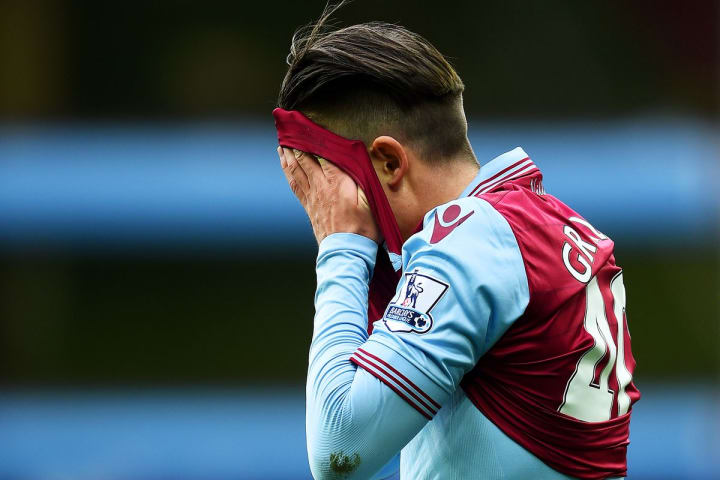How the Premier League is Trying to Save the Planet
Another Way To Measure Success

April 2021 was NOT a good month for the leading football clubs in England.
Despite the project now being in stasis, the hullabaloo around the proposed European Super League (ESL) has caused irreparable damage to the clubs involved. Not least to the relationships between those teams and their fan base.

The fans never wanted the ESL, and - for once - the supporters were listened to; the response to their outcry showed that 'fan power' still very much exists. The ESL may not be a viable option moving forward, but the owners and chairmen who hatched the scheme also now find themselves in almost untenable positions with their team's supporters.
Sanctions from the Premier League are unlikely, but the fans themselves will not forget; the supporters' anger at their perceived betrayal means it is just as unlikely that all of those same owners will still be in charge 12 months from now.
In a season that was strange enough due to Covid, the ESL was another major distraction during a year that had already plenty of them. And one of the things it distracted from was the admirable work Premier League clubs are doing to combat climate change.
Like tackling the issue of racism, it can be claimed that the clubs can do so much more. After all, as the ESL showed, it's hard to argue that the current crop of owners care little about anything that doesn't simply line their pockets. Taken in light of the ESL, many of the clubs' stated environmental achievements do ring hollow, coming across as no more than a PR exercise to show their 'green' credentials.
Yet, at the same time, when many industries are wringing their hands, and doing nothing, there has been major developments in this field in English professional football.
It might not be doing enough, but - credit where credit is due - it's doing something. And that is a pretty impressive start.
An Alternative Premier League
In a parallel universe, Tottenham Hotspur (one of those clubs that joined the aborted ESL) are top of the league: The Green League for 2020. Although they may occasionally be shambolic on the pitch, off it they are leading the way: In terms of climate change, they are the current champions. (However, knowing Spurs, they'll probably find a way to throw that away too.)
First published in 2019 by BBC Sport and the United Nations-backed Sport Positive Summit, the 'Sustainability Table' ranked the 20 clubs that make up the Premier League based on their approach to 'green' issues. In a North London double, Arsenal came second, while Aston Villa, Burnley, and Sheffield United occupied the bottom three places.
Points were awarded for a variety reasons.
A maximum of three points could be gained for offering plant-based or low-carbon food options, and communication and engagement. Meanwhile, two points were on offer for clean energy, energy efficiency, sustainable transport, single-use plastic reduction or removal, waste management, and water efficiency.
If you're looking to be more environmentally friendly, then those categories already offer food for thought as to how you can do more on a personal level.
A single bonus point could be awarded if a club actively encouraged fans towards positive behavioral change that reduces environmental impact in their own lives, if they were a signatory to the UN Sports for Climate Action Framework, and if a club tracks and reports on what modes of transportation fans use to travel to games.
Tottenham Hostpur's chairman, Daniel Levy, has long been vocal about his club's environmental record, citing the importance of being more sustainable. This will become even more important over the coming months when Coronavirus restrictions are relaxed, and fans return to stadiums, bringing with them extra levels of consumption.
"Looking to our future beyond the current pandemic, our message is that the climate needs to be at forefront of all our minds. We have seen people take greater pride in their environment during the lock-downs of the past year. When we return to normality, we cannot slip back into bad habits and lose sight of this."
For once, this isn't mere rhetoric: when the points were added up, Tottenham scored a commendable 21. Well done, Spurs!

Meanwhile, Aston Villa posted a miserable 7 points. Boo-hiss.

However, overall, there were marked improvements in all areas. Even the clubs at the bottom of the table were still actively trying to do better. The pandemic means, that in likelihood, no such table will be produced this year; after all, supporters have been unable to attend matches - trying to chart their sustainability is nigh impossible. But, there will be another table next year, and the evidence is that there will be a significant improvement again.
In terms of the environment, Premier League clubs are putting their money where their mouths are; in many respects, they're leading the way.
Yet, among all the physical, literal, things these clubs are doing, there is another aspect to all this: The importance of education.
Education, Education, Education
It's not just enough for these clubs to put measures in place, they also have to tell the fans WHY they're doing these things: Education and engagement are key.
Does this make football fans experts in this field? No, not yet. But, in the way clubs are engaging with them, there will be soon a new generation of football fans for whom thinking about the environment will be second-nature, for whom attending an environmentally-friendly event is the norm. For all the good things the clubs are physically doing, in the long-term, fostering this new mindset, or 'normalizing' the debate around climate change, could be the most important of all.
And professional football needs to change its mindset. In fact, it has a duty to.
It's not simply about the sport's huge stadiums that consume an unnatural amount of energy, and produce unhealthy masses of waste. Nor about the plentiful, and ever-changing kits its fans feel obligated to buy (clothing that is often produced using remarkably unsustainable, and unethical, methods). Nor about the travelling its supporters undertake; given the volume of cars, planes, and trains that need to be taken to follow a top-flight club over the course of a season, its almost oxymoronic to call any soccer-fan carbon-neutral.
It's more that football also has too much power, too much influence, to NOT be in the vanguard.
Soccer has 3.5 billions 'active' fans - that is, people who regularly watch the sport. It is by far the most popular sport on Earth, and has a responsibility to lead the way. Not just for itself, but for the planet as a whole.
In addition to finally waking up about its environmental responsibilities, football has the duty to embrace the extraordinary opportunities its global appeal presents to - literally - make the world a better place.
And it needs to.
The Endgame
According to David Goldblatt, an academic specializing in sport and the environment, "We're playing against the clock and we're in extra time already." Much of the environmental damage humans have caused cannot be reversed; if we continue as we are, our species is on borrowed time. However, we might not be able to restore our planet back to its factory settings, but we can still save it.
And the Premier League is showing us how.
What's truly interesting is that the things they're doing on a large scale, can be replicated on a personal level as well. Energy efficiency; waste management; purchasing sustainable clothing... these are things we should all be doing. It's not just big football clubs who need to adhere to the 'Sustainability Table'; we all do. If you want to explore how 'green' you are, mark yourself using the same criteria as Tottenham, Arsenal, and all the others did. For someone who considers themselves environmentally-friendly, I actually didn't do much better than Burnley.
Like them, I need to do much, much better. And, thanks to that table, I've got some firm ideas about how I can.
April 2021 was, overall, a dire month for the Premier League. Therefore, it seems incredibly strange to say that we also need to be a bit more like the Premier League. In terms of greed, enjoying a taste for the absurd, and its ability to shoot itself in the foot, yes - England's elite division has no peers. But, in terms of climate change, they're the example we need to follow. They're ahead of the curve.
Those clubs might be trying their hardest to alienate their fans, but they're also trying to save the world.
Be more like the Premier League.
(Well, apart from the secret scheming to start a break-away competition bit. That's one thing the world does need less of.)
---------------------------------------------------------------------------------------
If you've liked what you've read, please check out the rest of my work on Vocal, including my Top Story:
If you've really, really liked what you've read, a small tip would be greatly appreciated.
Thank you!
About the Creator
Christopher Donovan
Hi!
Film, theatre, mental health, sport, politics, music, travel, and the occasional short story... it's a varied mix!
Tips greatly appreciated!!
Thank you!!
Enjoyed the story? Support the Creator.
Subscribe for free to receive all their stories in your feed. You could also pledge your support or give them a one-off tip, letting them know you appreciate their work.






Comments
There are no comments for this story
Be the first to respond and start the conversation.